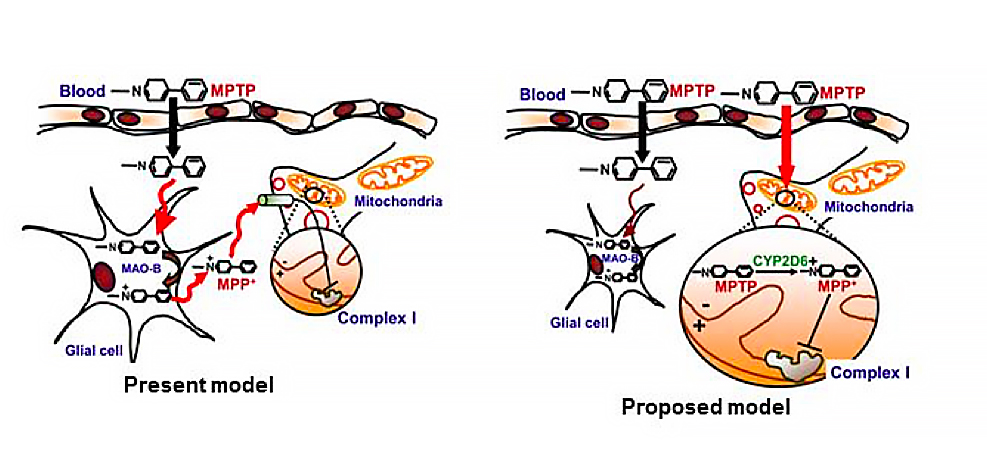New Drug Target for Chemically-Induced Parkinson Disease
Once upon a time, a compound found in synthetic opioid, MPTP induced the onset of Parkinson's disease. Early studies show that MPTP induces Parkinson disease in rodents and primates. The most recent study indicates that a naturally-occurring enzyme, known as mitochondrial CYP2D6, can metabolize certain compounds into MPTP-like chemicals and trigger Parkinson in mouse studies. Now, researchers are proposing a new treatment for chemically-induced Parkinson via targeting the mitochondrial CYP2D6 enzyme.
PennToday: Findings from Penn Vet suggest a potential new target for treating Parkinson’s, an enzyme that wreaks its damage on dopamine-producing neurons. Credit: PennToday.UPenn.edu
"Over the past two or three decades, researchers have tried inhibiting the process by which they believed MPTP was metabolized, with mixed success," says research leader, Narayan Avadhani. "We believe that mitochondrial CYP2D6 is the more direct drug target, which might prove better in treating idiopathic Parkinson's disease."
Learn more about Parkinson Disease:
Findings of the study were published in the Journal of Biological Chemistry and investigates the mechanism of Parkinson's disease with unknown causes. Current mechanism of action is believed to involve the oxidation of compounds to form MPP+--a toxic metabolite thought to be transferrable to dopamine neurons via dopamine transporter proteins. The process seemed logical since Parkinson disease is characterized by unusually low dopamine levels in the brain.
PennToday: The new model overturns a current paradigm of how chemical insults lead to Parkinson’s disease. (Image: Avadhani lab)
Targeting the mechanism of action, researchers showed that mice lacking CYP2D6 did not present with any severe symptoms that mice with the protein did. Furthermore, a CYP2D6 inhibitor was seen to prevent neuronal damage in mice.
"CYP2D6 is known to play a role in influencing the activity of a number of drugs," says Avadhani. "The CYP2D6 inhibitor ajmalicine is a member of the reserpine family of alkaloids, found in the plant Rauwolfia serpentine and was long used in India for treating mental illness, such as paranoia and schizophrenia. Mitochondrial targeting of such compounds is likely to be effective in treating Parkinson's patients, and pursuing that is our future strategy."
Source: Science Daily
-
MAY 07, 2024Is It Anti-RNP or Anti-Sm/RNP?
- See More
-
APR 30, 2024Immuno-Oncology Virtual Event Series 2024
-
MAY 07, 20243rd International Biosecurity Virtual Symposium
-
JUN 06, 2024The Future of Scientific Conferencing
- See More



















































